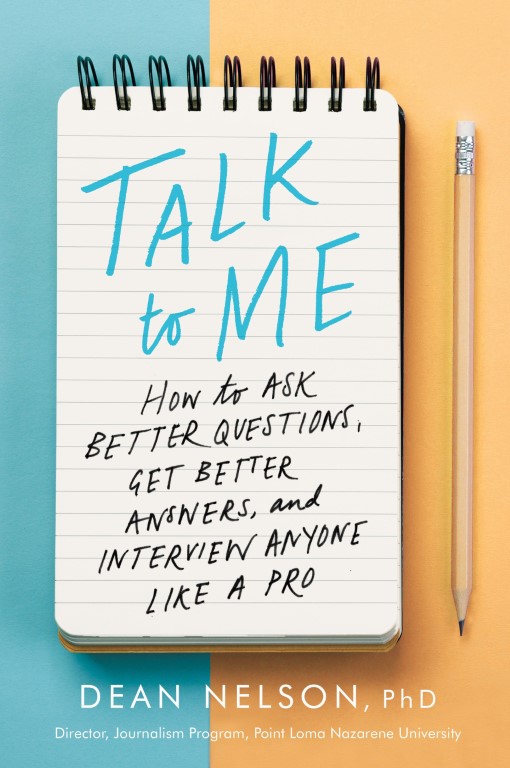
‘Talk to Me’ book review
By Tania Arora, Staff Writer
If you are seeking answers to your questions, then your questions better be meaningful and well-constructed. If you are asked something, your answers must be up to the mark and relevant. Interviewing is not just restricted to journalists, almost every person in any kind of profession is required to ask questions or answer them.
The book Talk to Me: How to Ask Better Questions, Get Better Answers, and Interview Anyone Like a Pro is written by Dean Nelson, director of the journalism program at Point Loma Nazarene University. The book has major tips and tricks on how to remove any mental barricades present while interviewing someone, and how to sharpen the communication skills needed to do so. Nelson says, “Great interviews aren’t the result of serendipity and intuition, but rather the result of careful planning and good journalistic habits.” The book is divided into 11 chapters, each followed by a case study.
The author uses both informal and formal tone to give a detailed explanation. Many would think it is more of a coursebook, based on its title. But the first sentence will put you at ease. Nelson writes, “Here’s my best excuse: I was young and didn’t know any better.” In the introduction itself, Nelson clarifies misconceptions of this book.
He uses a direct approach to explain all the points. “We have questions; we want answers,” was the first one. He shared his interview experience on how he was able to convince an artist to agree to answer his questions. He then discusses how everyone is an interviewer and why other perspectives matter to writers. Here’s an excerpt defining the same, “If you can master the art of asking good questions, you’ll be able to describe which part of the sky the moon was in, what those waves sounded like as they hit the cruise ship, what that person thought about as he tried to escape the hotel fire, what happened to that mom’s soul when that baby was set on her chest within seconds of being born… ”
He carefully broke down the process and blamed our negative mindset and lack of confidence to begin with. The art of interviewing involves a careful analysis of deciding who to speak to and why. Each chapter is followed by a guiding principle written by Nelson. He gives elaborate justifications for his principles and explains his realizations how he overcame barriers along the way. For his case studies he uses a conversational tone, and additionally shares a brief part of a valuable conversation he’s had with someone during the course of his career. The book is not written in a traditional boring way. He adds a different element every few pages to break the monotonous tone and make it a real page-turner.
If you are a person looking to improve your interactive skills and excel in communication in your relationships, then this is your book. A lot of times we either have to drag answers out of people or get awkward at the questions thrown at us. This disrupts the harmony of the relationship we have with people to an extent. It is essential to know how to balance it all.
.


